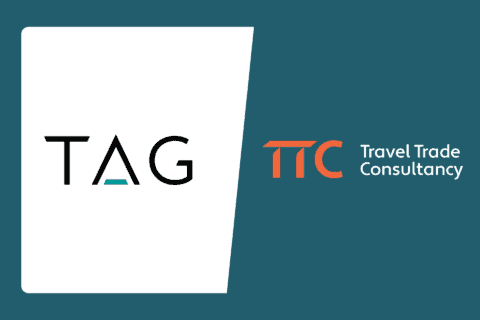The travel industry’s recovery, when it eventually comes, will be built on confidence. In the continuity of travel rules, in the safety of destinations and in the efficacy of vaccines.
Protecting customers’ money is a vital part of rebuilding confidence. Customers will only give us their hard-earned cash if they’re confident we’ll look after it or give it back if things go wrong.
Many travel companies have a legal obligation to protect their customers’ money. Many others offer voluntary protection as a way of building credibility with customers, suppliers, lenders, and other important stakeholders.
In the last two years, the travel sector’s various systems of financial protection have been tested like never before. So far, they’re still standing, but here are four major challenges on the road ahead.
Capacity
The travel industry is highly reliant on the insurance market to function effectively.
Insurance bonding and Financial Failure Insurance are the commonly used methods of complying with regulatory obligations. Even companies who protect customer monies in trust accounts need insurance to cover the early release of supplier payments or to cover the cost of repatriation.
Insurance capacity in the travel industry has been decimated. The Thomas Cook Group failure in late 2019 led to many insurers pulling out of the market entirely. Two years of Covid certainly haven’t helped. Even for those few hardy insurers left in the market, the capacity they can offer is lower, their premiums higher, and their underwriting process much more intrusive.
New insurance capacity will be vital for a recovery to flourish. For the past few renewals, bond requirements have generally been lower, reflecting the quieter booking environment. But when trading begins to normalise, licence authorisations and bonds will need to increase. Without additional capacity, we face a huge challenge. If demand for booking holidays outstrips licence capacity, many companies will be unable to take part in the recovery.
Collateral
In the absence of adequate unsecured insurance capacity, many of our clients have been forced to provide collateral. While a handful of larger companies have been able to use bank facilities and other assets, security has mostly been in the form of cold hard cash.
Insurers aren’t the only ones trying to snaffle cash, of course. Merchant acquirers are looking to cover their own risk positions and they will often do that by deferring settlement and holding funds. Suppliers are tightening payment terms. Meanwhile, the CAA holds many travel companies to strict liquidity covenants. In some cases, they’re also forcing companies into escrow or trust arrangements.
All of these demands have put enormous pressure on cash flow at a time when inflows from bookings are severely reduced.
Complexity
The simple days of yesteryear, when you could arrange financial protection with little more than a few phone calls and a spreadsheet, are long gone. These days everything seems more complex.
The lack of capacity is forcing us to be creative with hybrid protection structures, like using a bank credit facility to secure an insurance bond or a trust account to secure a Financial Failure Insurance provider.
We’ve seen many companies move into trust or escrow accounts. Some have been pushed. Some have volunteered. All find it complicated. They need legal advice, careful financial modelling, and processes for reporting and releasing funds.
In the current high-risk environment, regulators, insurers, reporting accountants and credit committees are scrutinising everything in greater detail. What used to be routine has become painful.
Clarity
Making accurate predictions about the future in a rapidly changing environment is a major challenge. As an example, we have clients who renewed licences and bonds in September, using what they considered to be entirely sensible trading projections. Within two months, they’d seen a surge in demand following various positive government announcements during October. So they began the complex, time consuming and expensive process of increasing their licence limits and bonds.
Less than a month later, Omicron and the ensuing restrictions mean those additional holidays may not go ahead, meaning it’s all been a huge waste of time, money and resources.
Trading looks set to be turbulent for the foreseeable future. Arranging financial protection is likely to be challenging for some time yet. Here are a few things that you should consider:
- There are several financial protection options available. Make sure you know which ones are available to your business.
- If you don’t already have one, get yourself a robust, flexible financial model. They help you plan out different scenarios, identify key crunch points, and instil confidence among stakeholders.
- Apply for licence and bonding renewals early to improve your chances of sensible dialogue within the time limits.
- Finally, don’t bury your head in the sand. If you find yourself in difficulty, make sure you start conversations with important stakeholders like regulators, insurers, and lenders. Problems rarely get better with age.
If you would like help with any of the issues mentioned above, please get in touch.
Join our newsletter
If you enjoyed this post, why not sign up to our newsletter? Get our latest blog posts, industry updates and exclusive content.
Sign up



